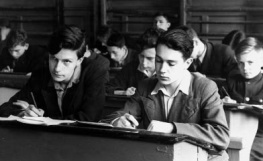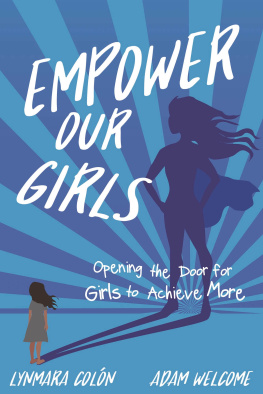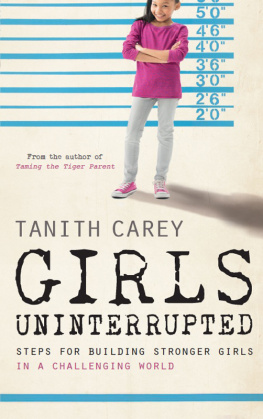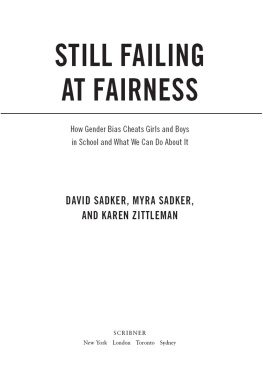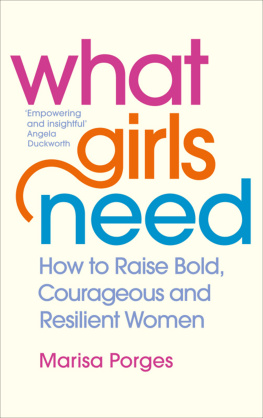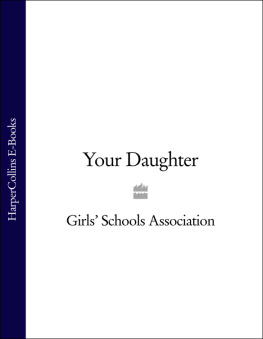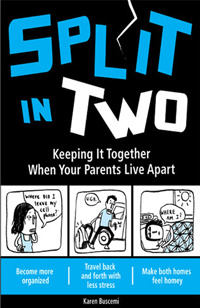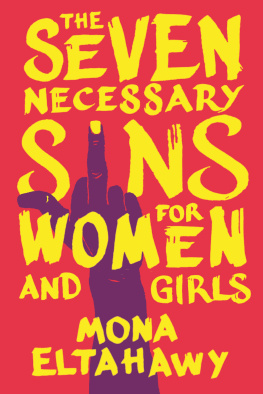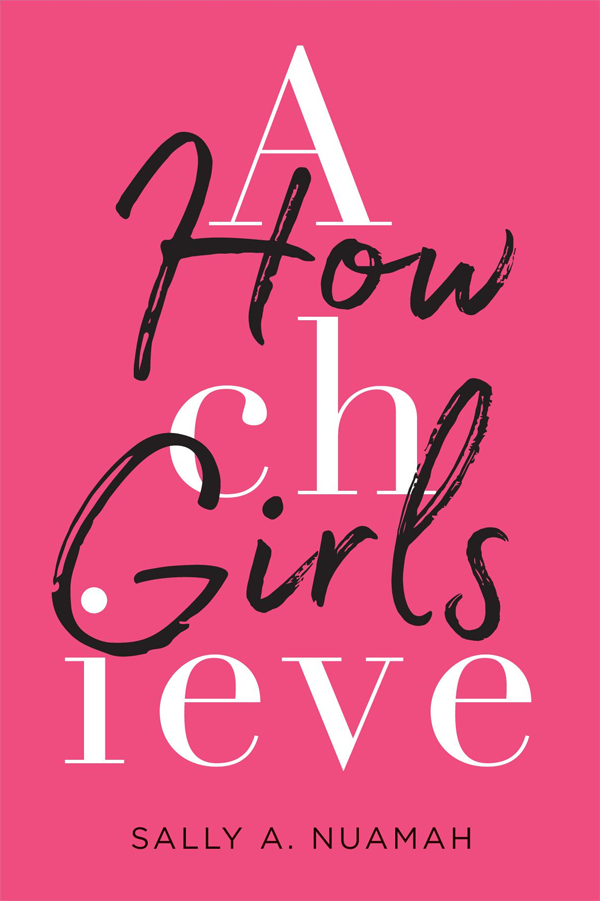Copyright 2019 by Sally A. Nuamah
978-0-674-98022-8 (alk. paper)
School is her refuge.
refuge
noun
A condition of being safe or sheltered from pursuit, danger, or trouble.
AN OLDER WOMAN spoke to me with clear eyes and a calm tone, slowly and deliberately so that I might imagine her and Ghana in the 1970s:
I didnt grow up with my mom because my mom was young when she had me. When my father died, my mother was learning hairdressing, so she moved She was hustling, so she wouldnt have to live with her mother.
She had the other two that came after me [when] she was still young, around 22 or 23, so my grandmother raised me. I loved my grandmother raising me. She gave me a lot of wisdom. The only thing though is, no matter how poor or what condition, you will still miss your mother. There are certain things that make me unsure or that affect me still today because of my mother.
Although my grandma loved me, I felt like I didnt belong. I felt like the rest had some type of freedom that I didnt have. I felt like I had to conform, that I had to listen. I felt like I could not say no when they did because I didnt have that kind of entitlement.
When school opened, I would have to wait until everyone else got their school supplies before someone will notice that I didnt have mine.
[Being motherless] always pushed me a little to the back. It made me a quiet person, and as a result, school became my refuge. I loved going to school.
There, I could express myself. I could show people I was better.
That is my mothers story.
She was born and raised in Ghana, the daughter of teenage parents, although her father died soon after her birth.
My mother used school as a refuge from her home life.
She went to one of Ghanas best secondary schools, St. Monicas, and later entered secretarial trade school. Soon after, she was admitted into the University of Cape Coast but was unable to afford the tuition.
My mothers educational journey came to an end.
She met my father at twenty-eight, they married, and she decided to migrate with him to America in search of better opportunities. Following their arrival, my brother and I were born, but by the time I was five my mother and father divorced.
My mother raised my brother and me.
She worked as a hotel maid and then as a parking lot patroller in Chicago throughout our childhood, adolescence, and young adulthood. In her twenty-six years of working in America, she never earned more than eleven dollars an hour.
My father was present sporadically.
I am the child of immigrant parents, a first-generation American. I was raised by a single mother on a small salary in a low-income neighborhood in Chicago. I am a woman, and I am Black.
I fit most of the statistical categorizations of disadvantage.
In fact, by most statistical models, it is unlikely that I would have gained the education and prestige necessary to catalog my mothers experiences in a published book. Yet my mothers educational aspirations have survived through me.
School has been my refuge.
Inspired by my mothers example, for the past ten years I have collected data on the educational experiences and aspirations of girls in South Africa, the United States, and Ghana. This book represents my attempt to develop a cohesive message from these data.
If this book has resonance in the world, I hope it leaves people with something like the following:
May the schoolhouse be a refuge for all girls like it was for me and my mother.
When I was young, I thought that a life of equality, wisdom and justice would be my birthright if only I worked hard at school I was wrong.
HOPE CHIGUDU
I AM GOING TO START THIS BOOK where most people end. I conclude that to let girls learn, schools must first protect them. Then, they must teach them three skills: confidence, strategy, and transgression. Finally, and perhaps most important, they must reimagine what it means to achieve.
Allow me to explain.
I begin with the premise that no one selects the circumstances of their birth, yet ones circumstances directly affect ones life chances. Children born poor, female, a person of color, differently abled, or LGBTQ + , for example, suffer disruptions to the length and quality of their lives. And that is unfair.
Because it is unfairand a central tenet of liberal democracies is nondiscriminationif we claim to value fairness, we must intervene. To be clear, we must ensure that the circumstances of ones birth do not dictate the remainder of ones life.
The question is, How?
I argue that no institution or social system is more likely to improve the life trajectory of the disadvantaged than schools. Not voting. Not infrastructure. Not employment. Schools.
John Dewey noted, the moral responsibility of the school, and of those who conduct it, is to society. The school is fundamentally an institution erected by society to do a certain specific work,to exercise a certain specific function in maintaining the life and advancing the welfare of society. It is unsurprising, then, that past systems of education were used by countries to maintain inequalitytake Jim Crow segregation in the United States or Bantu Education in South Africa. Conversely, systems of education have been used by countries to repair past injustices and advance equalitytake school desegregation, beginning with the 1954 Brown v. Board of Education decision in the United States and the provisional constitution of South Africa in 1994.
In modern liberal democracies, schools are tasked with providing all students with the tools they need to achieve (as a mechanism for becoming productive workers and good citizens). To do this, schools focus on improving the quality of schools, measured by the cognitive development of students or the instructional skills of teachers. These improvements are aimed at reforming school leadership, approaches to teaching, and classroom structure.
However, as schools work to become higher quality institutions, they often fail to provide certain groups, the largest of which is girls, with an educational environment that protects them. Nor do they imbue them with the confidence to believe in themselves, the strategies they need to navigate barriers, nor the audacity to transgress societal norms. In fact, most schools are completely unprepared to educate girls in an equitable fashion, if equitable is defined as girls receiving what they need to succeed. I offer the story of Ezra and Jude as an illustration.
Ezra and Jude attend public school in a large city. Yet while Ezra attends school the full twenty-three days in each month, Jude only attends school eighteen days in each month. What explains the difference in school attendance between Ezra and Jude? And does it matter if they are both high academic achievers?


